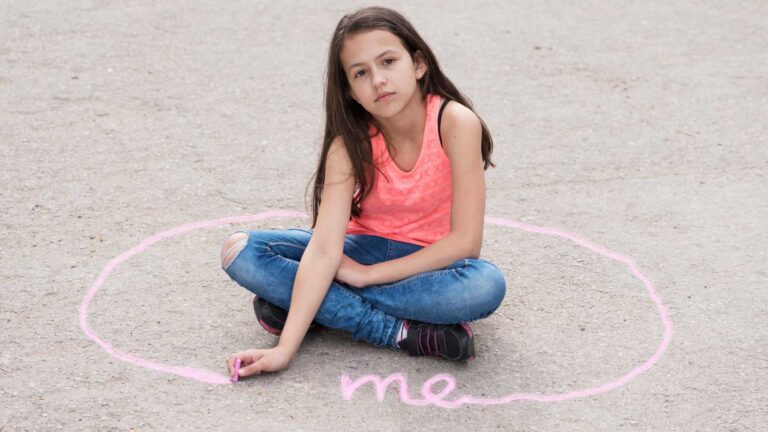Do autistic people struggle with personal space?
November 30 is National Personal Space Day to raise awareness about acknowledging and respecting personal boundaries. This day holds particular significance for individuals grappling with sensitivities, phobias, illnesses, and various disorders, including autism. Parents and caregivers of children with autism may wonder: “Do autistic people struggle with personal space?“
The intersection of personal space and autism is a complex one, often misunderstood by many. Although every individual with autism struggles in their way with social interactions, some face challenges related to personal space. However, it’s essential to realize that the concept of respecting personal space extends beyond autism; it’s why individuals might prefer to avoid physical contact.
When discussing autism and personal space issues, two scenarios often emerge. First, some individuals may have sensory preferences or sensitivities that overwhelm physical contact and social interactions, complicating their relationship with personal space. Conversely, others with autism might struggle with understanding social cues and consequently have difficulty respecting the personal boundaries of others.
National Personal Space Day serves as a platform for ABA Centers of Florida to emphasize the significance of being aware of personal space, not just for the autism community but for everyone. This day encourages mindfulness of proxemics in varying contexts, recognizing that everyone’s engagement with this subject will differ. It’s a call to honor and respect each person’s choices, fostering an environment of empathy and understanding.
The History Behind National Personal Space Day
In 2019, public health specialist Carol Winner established National Personal Space Day, emphasizing the importance of respecting personal boundaries in fostering a civil society. While our culture often encourages physical contact, like handshakes or hugs, not everyone is comfortable with this norm. National Personal Space Day serves as a reminder that setting boundaries should not be considered impolite.
After losing her mother to cancer, Winner founded “For the Love of Peach,” an organization dedicated to promoting respect for personal space. Her personal experience, serving as a caregiver for her chronically ill mother, who frequently faced physical contact with the people who visited her, underscored the pressing need for increased awareness.
Winner lost her father at a young age and became the primary caregiver for her mother at just 17. She spent four decades caring for her mother, whose low immunity made her particularly susceptible to viruses and bacteria. Despite her mother’s vulnerability, visitors would often hug or kiss her without considering the potential health risks, putting social expectations over her well-being. This experience pushed Winner to champion the importance of personal space.
Through “For the Love of Peach,” Winner aims to reshape societal norms around showing affection and spread the message that maintaining distance can be both respectful and lifesaving.
How to Embrace National Personal Space Day and Autism
1. Talk About Boundaries
Discussing boundaries is crucial, especially when addressing personal space and autism. Whether your child with autism struggles with respecting others’ personal space or prefers avoiding physical contact due to sensory sensitivities, it’s important to communicate this issue to those around them. Advocating for your child can help friends and family understand the importance of honoring and respecting your child’s personal space, eliminating misunderstandings. Encourage alternate expressions of affection, such as kind words or engaging in activities your child enjoys.
Equally important is teaching your child about personal space helping them understand social expectations. National Personal Space Day provides an excellent opportunity to broach this subject using tools like social stories and visual aids. For guidance on writing social stories, refer to this guide by Autism Parenting Magazine. This approach can significantly aid in tackling personal space and autism issues effectively.
2. Find Support in ABA Therapy
ABA therapy, the gold standard for autism treatment, is pivotal in teaching social and communication skills, thereby supporting personal space and autism concerns. Its effectiveness lies in therapists’ personalized approach, tailoring plans to meet each client’s needs, including social skills, communication abilities, and coping strategies. Discussing personal space with your child’s ABA therapist is crucial, whether teaching your child to respect others’ personal space or communicating their own space needs.
3. Spread the Word
Sharing knowledge is the best way to put it to good use. Many in your community have not heard about National Personal Space Day; sharing this information can be beneficial. Educating the community about the personal space needs and challenges of people with autism is crucial to fostering acceptance and awareness. Promoting understanding of autism is essential, as is highlighting the potential impact of physical contact on the health of ill people.
4. Advocate for Personal Space Needs
If you need to protect someone’s personal space, be it a loved one with autism or an individual with a medical condition, don’t hesitate. Assertive communication can raise awareness. Nobody opts for isolation, and it’s challenging. Yet, advocating for personal space can significantly influence someone’s health.
ABA of Florida Supports National Personal Space Day
ABA Centers of Florida is committed to fostering acceptance of the needs of individuals with autism. Our ABA therapy and expert staff strive to equip children with autism with the necessary skills to thrive and reach their full potential.
In recognition of National Personal Space Day, we underscore the importance of understanding the unique interaction challenges faced by people with autism and those with social anxiety. We can promote change, acceptance, and empathy by respecting everyone’s preferences and needs.
For those interested in addressing personal space and autism through our ABA therapies, please call (772) 773-1975 to schedule a free consultation or contact us on our website.








